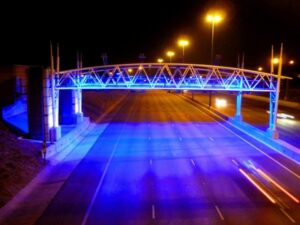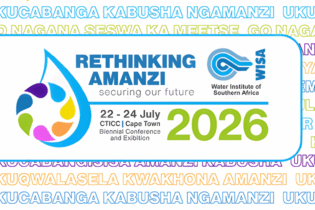E-toll payments became a thing of the past as of the end of the week, with Gauteng road users no longer being charged for the use of the e-toll network.
This followed Transport Minister Sindisiwe Chikunga‘s publication in the Government Gazette of a notice concerning the withdrawal of the toll declaration of the Gauteng Freeway Improvement Project (GFIP), more commonly known as e-tolls. “The declaration became effective on April 11, 2024, at 23:59, meaning that from April 12, 2024, road users were no longer charged for using the e-toll network,” stated Chikunga on Wednesday in Centurion. The Minister clarified that the obligation to pay e-tolls remained until midnight on April 11, 2024. “Road users were not required to take any action when e-tolling was canceled. Importantly, ‘current valid accounts’ could still be used for payments at toll plazas and other value-added services such as parking,” Chikunga emphasized. “The tag beeps ceased after midnight on April 11, 2024. However, the gantry lights and cameras remained operational for road safety purposes. The e-toll website was updated to reflect the cancellation, including Mobility/Tag account functionality for services such as interoperability and parking,” she added. E-toll invoices were consolidated until the last day and issued up to that period. Due to potential delays in the postal system, invoices might still be received sometime after April 12, 2024. However, no transactions after midnight on April 11, 2024, appeared on the invoice or statement. The e-toll stores remained open, as the tag could still be used for interoperability, account queries, and other potential transport-related services. The process of removing e-toll branding was set to occur in phases.The e-tolling system, despite being implemented after some consultation, had stirred public outcry and caught the attention of the Cabinet.
“This concern led to the formation of a three-member committee comprising the Minister of Transport, Minister of Finance, and Gauteng Premier, charged by President Cyril Ramaphosa in July 2019 to find a solution to the impasse,” explained Chikunga. “Finally, between myself as Minister of Transport, Finance Minister Enoch Godongwana, and Gauteng Premier Panyaza Lesufi, we reached an agreement towards the end of March on how to conclusively deal with the debt resulting from e-tolls,” she added. “As a result, we signed a Memorandum of Agreement (MoA) to formalize alternative funding solutions for the GFIP debt repayment and address the backlog of maintenance and rehabilitation costs,” Chikunga elaborated. The South African National Roads Agency (SANRAL) had resolved its long-standing application for increased borrowing limits from Treasury. This allowed the agency to approach the market to unlock funding from the private sector to finance its existing pipeline of capital expenditure projects. “We hope that the resolution of the GFIP funding and the resultant withdrawal of e-tolls will provide Gauteng motorists and South Africans in general with certainty after a long period of uncertainty,” expressed Chikunga. “We understand that resolving this issue may have taken longer than some people wanted, but it involved complex negotiations, which were handled in a mature and professional manner by all concerned,” she concluded.






